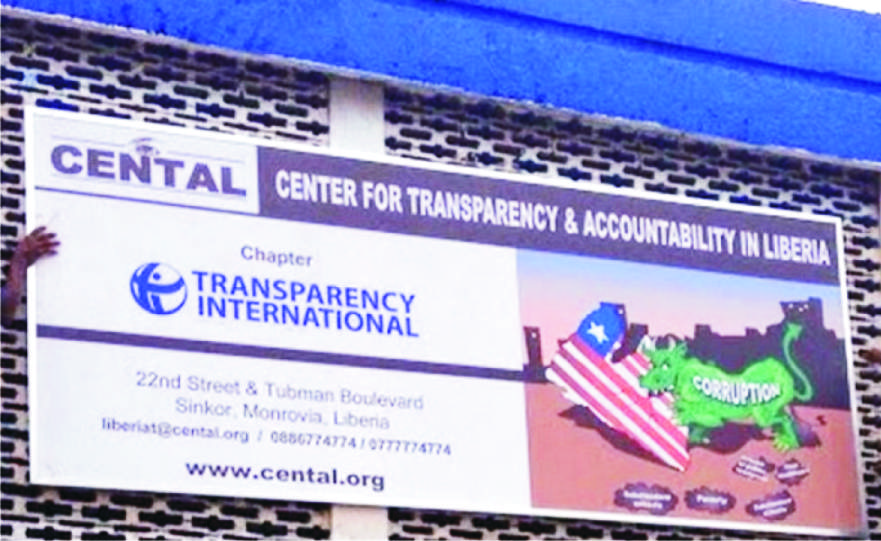The Center for Transparency and Accountability in Liberia (CENTAL), an integrity watchdog, has expressed deep concern over an alleged corruption scandal involving 8.1 million Liberian Dollars at the Monrovia Consolidated School System (MCSS). CENTAL has called for President Joseph Boakai to immediately suspend all individuals implicated in the alleged misappropriation of funds, pending a thorough investigation by the Liberia Anti-Corruption Commission (LACC). The Financial Intelligence Agency (FIA) has already recommended a full-scale investigation into the MCSS insurance scheme, after uncovering suspicious transactions between an MCSS employee, Sonita Dangan, and a suspected employee of Sky Insurance company, Kabineh Keita. The FIA reportedly found no legitimate business relationship between the two individuals to justify the transfer of 8.1 million Liberian Dollars. Separate allegations also implicate MCSS administrators in charging teachers US$920 for a study program in India, despite the program already being fully funded by the government.
CENTAL’s Executive Director, Anderson Miamen, emphasized the gravity of these allegations, particularly given the dire state of Liberia’s education sector. While acknowledging the need for a formal investigation to confirm the veracity of the claims, Miamen stressed the detrimental impact such accusations can have on public trust and the government’s anti-corruption efforts. He pointed to recent protests by students and teacher strikes as indicative of the existing discontent within the education system. Miamen argued that a swift and decisive response from President Boakai, including the suspension of implicated officials, is crucial to demonstrate a commitment to transparency and accountability. Failure to address these allegations convincingly, he warned, risks perpetuating a culture of impunity and undermining stakeholders’ faith in the system.
Miamen highlighted President Boakai’s previous efforts to combat corruption, including the establishment of the Assets Recovery Taskforce through Executive Order #126 in March 2024. This taskforce was mandated to recover misappropriated public resources and properties, both within Liberia and abroad. However, CENTAL criticized the initial composition of the taskforce, noting the exclusion of the LACC and the inclusion of politically active individuals, which raised concerns about its impartiality and effectiveness. The taskforce’s first year was reportedly marred by internal conflicts, legal battles, and limited stakeholder engagement, hindering its ability to fulfill its mandate.
In March 2025, upon the expiration of Executive Order #126, President Boakai extended the mandate of the Assets Recovery Taskforce, but with significant revisions. The taskforce was reduced from 15 members to 5, a move lauded by CENTAL as a cost-saving measure that would also improve coordination and efficiency. Crucially, the revised mandate emphasized collaboration with key institutions, including the LACC, Ministry of Justice, Liberia Revenue Authority (LRA), Financial Intelligence Agency (FIA), and the Office of Ombudsman. CENTAL welcomed this collaborative approach, recognizing the expertise and experience these institutions bring to the fight against corruption.
CENTAL views the streamlined taskforce and its enhanced collaboration with established institutions as a positive step towards strengthening Liberia’s anti-corruption efforts. The inclusion of the LACC, in particular, addresses a key concern raised by CENTAL and reinforces the government’s commitment to transparency and accountability. The reduced size of the taskforce is also expected to streamline operations and free up resources for the core mandate of recovering misappropriated assets. CENTAL expressed optimism that these changes will contribute significantly to dismantling the culture of impunity and ensuring that those responsible for corruption are held accountable.
The current allegations against MCSS officials present a critical test for the reformed Assets Recovery Taskforce and the government’s broader anti-corruption strategy. The swift and decisive action demanded by CENTAL underscores the urgency of the situation and the need for a thorough and transparent investigation. The outcome of this investigation will be crucial in demonstrating the government’s commitment to tackling corruption and restoring public trust in the education system and public institutions more broadly. The international community and development partners will also be closely watching the government’s response to these allegations, as it will signal Liberia’s commitment to good governance and responsible management of public resources.


